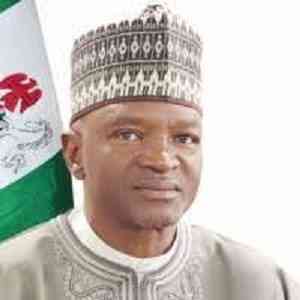
The Federal Government has explained that implementing the National livestock transformation Plan (NLTP) will close the dairy importation gaps and address other challenges to livestock development in Nigeria.
The Minister of Agriculture and Rural Development, Dr. Mohammad Abubakar, stated this during a virtual meeting with Commissioners of Agriculture across the 36 states of the federation including the FCT and other stakeholders on the State Level Project Socialization on Livestock Productivity and Resilience Support Project (L-PRES) today (December 7).
According to him, the L-PRES program is targeted at addressing the age-long, low investment profile in the sub-sector to improve livestock productivity, resilience and commercialisation of selected value chains, as well as strengthening the country’s capacity to respond to crises.
He reaffirmed that the L-PRES project would facilitate the achievement of food security, reduce incessant conflict between farmers and herdsmen and cushion the effect of the COVID-19 pandemic on the livestock industry. He said the project aligns with the government’s strategies and policies on the promotion of climate-smart livestock and productivity, expansion of rural economy for employment and income-generation, promotion of exports and reduction in the importation of livestock and livestock products, and empowerment of women, youths and vulnerable people.
“With the current realities in the world food supply systems, the next issue of focus will be animal protein supply chain and its nexus with global welfare and security. Nations’ abilities to provide good quality and affordable animal proteins have not only been linked with their pecuniary statuses but a direct relationship with human capital development and intellectual quotient.
“Although Nigeria Livestock subsector provides about 36.5 per cent of the total protein intake of Nigerians, it also contributes about 8-10 per cent of the Agricultural GDP and 5% of the National Gross Domestic Product and has been a key contributor to poverty reduction, especially in rural areas.
“We are yet to take full advantage of the regional markets under our influence and have in recent times spent huge amounts of forex on importation of products that can be produced effortlessly in the country. Importation of dairy products where we spend about US$1.3 Billion annually according to the CBN (2019) is a prominent example of the above narrative,” the minister stated.
Represented by the director, animal husbandry services department, Mrs. Winnie Lai-Solarin, Abubakar was optimistic that the successful implementation of the National Livestock Transformation Plan will close importation gaps and address other challenges to livestock development in Nigeria.
The minister said the meeting was organized to provide updates on the project preparation and readiness; deepen state-level awareness and buy-in ahead of project negotiations, approval, and implementation arrangements for maximum impacts and value for investment.
In his goodwill message, the World Bank country director, Dr. Shubham Chaudhry, said that the programme will help Nigeria realise her full potential in the livestock sector.
He urged state governments to key into it, as implementing the programme in the nation would reduce poverty, provide job opportunities and grow the nation’s GDP.
Chaudhry reaffirmed the World Bank’s commitment to partner with the Federal and state governments to accomplish the L-PRES project in Nigeria.
He commended President Muhammadu Buhari for making the National Livestock Transformation Plan (NLTP) a national priority and encouraged the state governments to embrace the program.
In her presentation on the update on L-PRES Project Preparation, Lai- Solarin informed the state commissioners and participants that the Federal Government and the bank are ready to have the project take off next year.
She appealed to state governments to facilitate the implementation of the project by increasing budgetary allocations for livestock development, giving adequate state counterpart financing and providing office spaces, vehicles and other basic facilities to demonstrate their commitment and readiness to implement the project in their states.
According to a statement by the ministry’s director of information, signed by Mrs. Juliet Okeh, Lai-Solarin disclosed that, so far, 28 states and the FCT have expressed interest in the project. He appealed to others to take advantage and identify with the project.


